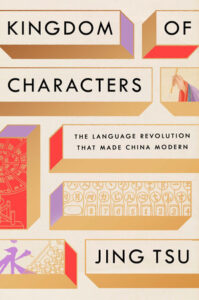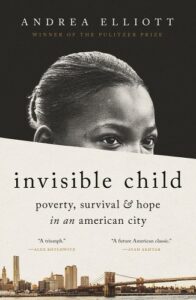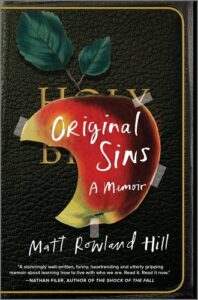This year's longlist for the Baillie Gifford Prize encompasses a diverse selection of some of the best nonfiction published in 2022. Narrative and investigative, historical and contemporary, this year's longlist examines topics ranging from the British Empire to the paleobiological history of our planet. Below, the longlisted authors answer some of our questions and tell us a bit about their books and the research and writing processes that went into them.
*

How did you conduct your research?
The research for this book took me to several continents and about a dozen countries. Archives can be a treasure trove of surprises as well as dead ends, though, so I was sent back to the drawing board on more than a few occasions. Along the way, unexpected and remarkable people in real life also offered pointers that propelled things forward—much like the human characters in the book.
How key has China's ability to adapt to an increasingly modernized world whilst retaining its own culture been to its current economic success?
Adaptation and preservation have been the twin pillars of modern China's approach to the outside world. The Chinese script revolution is a story about how the two imperatives, contradictory at times, were harnessed in China's path to reach the present.
There's been a growing Western interest in East Asian culture, from manga to in Japan to the increasing popularity of Korean cinema and TV. What do you think has caused that?
The 21st century has been aptly called the Asia century—where we expect to see the greatest economic growth and potential for social change. Well over half of the world's population live in that part of the world, covering more than 2,300 languages, as opposed to the official 24 of Europe. There is no doubt much to learn about Asia as a whole and in its complexity—not just China, Korea, and Japan but also South and Southeast Asia.

How did you conduct your research?
To tell the multigenerational story of Dasani Coates' family, I spent nearly a decade conducting two kinds of research: immersive, real-time reporting on the family's life and investigative research that unearthed for more than 14,000 records detailing the family's history with the American government. (For greater detail, please see my summary on sources and methods, attached).
My immersion with Dasani's family took me deep into poverty's systems, standing in line for hours at the welfare office and the homeless intake center, attending family court hearings, going to hospital emergency rooms and drug-treatment centers, and shadowing the children in school. As the family moved between Brooklyn, Harlem, the Bronx and Staten Island, I was often with them: sleeping on their cold floor, attending family barbecues, watching the children dance for money in the subway.
The intensity of my reporting stems from a belief that well-told stories—those with depth and nuance—are the product of intimate knowledge. And that comes from being with people, day after day, deeply immersed in their lives.
How did you first become aware of Dasani's story?
One afternoon in January 2012, I saw a statistic that stunned me: One in five American children were living in poverty. In raw numbers, this was a population of 16 million children, living in a superpower with one of the highest child poverty rates of the developed world. As a reporter for The New York Times, I began searching for a way into this story. And right in New York City there were record numbers of homeless children—more than 22,000 that year alone—in a city that had become a global symbol of inequality.
I finally met Dasani and her family that October, while standing outside their homeless shelter in Brooklyn. Dasani's mother was walking like a drill sergeant with her children right behind her. I'll never forget how united they looked, how powerful in their togetherness. Fifteen months later, I published a five-part series about Dasani in The New York Times and, for the next eight years, continued to follow Dasani's life into adulthood.
This is your first book. What was it like making the switch from journalism to this longer form of writing?
I brought into this project a hard-earned skill that remains sacred to me: investigative reporting. During my years as a newspaper and magazine writer, I had learned the art of interviewing, the expertise of first-hand observation and the meticulous craft of mining records. What I yearned for—and ultimately found through this book—was the space to write. "Invisible Child" showed me the power that comes when investigative reporting is laid bare in book form.

How did you conduct your research?
By making pretty much every mistake a person can make, and then sitting down and trying to remember them all.
Do you think there is an issue with the way we view addiction?
It's almost a banality to say it at this point, but the problem with the way we view addiction as a society is that we see it as largely a medical problem for well-off and especially white users and a criminal one for the less lucky. But everyone knows the so-called war on drugs has failed—even the politicians who hypocritically prosecute it.
What I think is less well understood is that addiction isn't a special condition from which some people suffer and others don't. It exists on a spectrum. The modern west is undoubtedly the most over-stimulated—and therefore addicted—society there's ever been. In other words, we're virtually all addicts, to a greater or lesser degree—whether our "drug" is food, the internet, wealth, consumption, status, whatever. It's convenient for us to see the junkie on the street as our image of the "addict" because doing so helps us ignore the way he or she holds a mirror up to the way we all increasingly live.
Is it difficult being open [ . . .] or is it more cathartic?
It was easy to be brutally honest at first because I didn't imagine, at that point, anybody would read what I was writing. I just carried on in that mode.
As for catharsis, I'm not above taking it wherever I can find it. But, on the whole, I think there are better places to seek it than the blank page—for myself, at least.





No comments:
Post a Comment